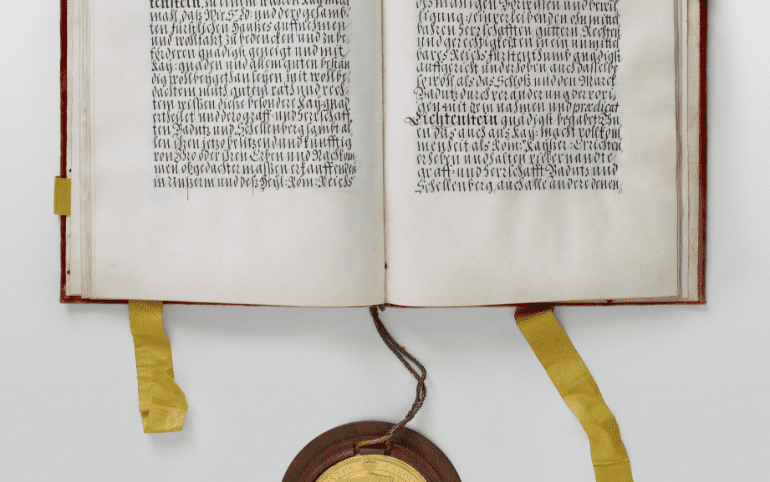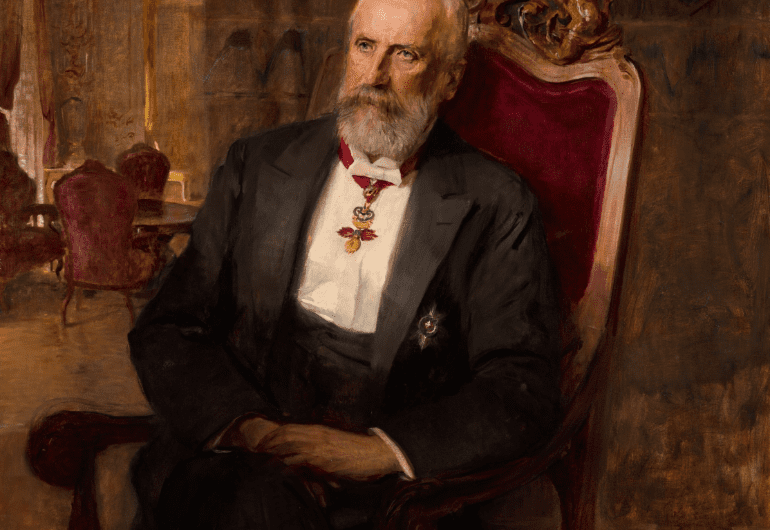H.S.H. Hereditary Prince Alois von und zu Liechtenstein
The name Liechtenstein was first mentioned around the year 1136. Hugo von Liechtenstein probably named himself after Liechtenstein Castle south of Vienna. In 1608, Karl von Liechtenstein received hereditary princely dignity.
The History of the Princely House
The name Liechtenstein was first mentioned around the year 1136. Hugo von Liechtenstein probably named himself after Liechtenstein Castle south of Vienna. The unbroken line of ancestors began with Heinrich I of Liechtenstein, who died around 1265/66.
In 1249 Heinrich I of Liechtenstein received the dominion of Nikolsburg (Mikulov) in southern Moravia from Ottokar II in his capacity as Margrave of Bohemia (he only turned King of Bohemia in 1253) as freehold. This donation was of great importance for the von Liechtensteins' descendants. The family thus received for the first time - in addition to their castles and dominions in Austria - considerable property in the territory of the Bohemian lands.
In the 13th century, the family divided into the (later) Liechtenstein, the Rohrau and the Petronell lines. The latter two lines, however, died out in the very next generation. Much valuable family property was lost as a result.
The Princely House and Liechtenstein
After the sons of Hartmann II had been elevated to hereditary princely status (Karl in 1608 by Archduke Matthias, confirmed in 1620 by Emperor Ferdinand II, Maximilian and Gundaker in 1623 by Emperor Ferdinand II), their successors strove to come into possession of territory that was immeasurable to the empire in order to gain a seat and a vote on the princely bench of the Imperial Diet and thereby rise to the top echelons of the imperial aristocracy. Prince Johann Adam Andreas I acquired the Lordship of Schellenberg in 1699, the County of Vaduz in 1712, and since then Vaduz Castle has also been in the possession of the Princes of Liechtenstein. By merging the two possessions, the united territory was elevated to the Imperial Principality of Liechtenstein in 1719.
Under Prince Johann I, Napoleon admitted the Principality of Liechtenstein to the Confederation of the Rhine in 1806, thus laying the foundation for the country's sovereignty. All family members living today are descended from Prince Johann I.
Prince Johann II gave Liechtenstein its first constitution on a parliamentary-democratic basis in 1921.
Prince Franz Josef II was the first prince ever to take up residence in Liechtenstein in 1938. He also succeeded in preserving the country's independence during the Second World War.
The Reigning Prince Hans-Adam II is particularly committed to Liechtenstein's independent foreign policy. Under his leadership, Liechtenstein joined the United Nations Organisation (UNO) in 1990 and the European Economic Area (EEA) in 1995.

